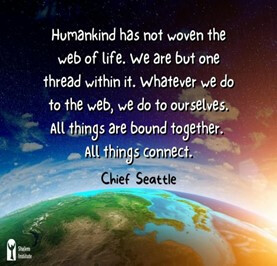October 27, 2024 | Rev. Loren McGrail

The last shall be first. So, let’s start with the last reformation, which was on October 31, 1517, when the priest, theologian, Augustinian friar, and hymn writer Martin Luther, nailed 95 theses to the door of the Wittenberg Church in Germany. Luther not only challenged papal authority but the infallibility of a single white male hierarchy. He also criticized the practice of selling indulgences in exchange for the absolution of sins.
The Protestant Reformation was indeed a ‘protest’ movement to try and reform the existing church. It was greatly aided by the invention of the printing press which meant that the masses who could read could now read scripture themselves. This led to the famous Sola Scriptura statement which says that the Bible is the sole authority of Christian faith. It is infallible, final, and the truth. Spiritual life is taught through scripture only.
Now let’s go further back to Prophet Jeremiah who was also talking about reformation, a new covenant with the house of Israel, a covenant which would be written on their hearts. Their iniquities or sins would also be forgiven.
Dear Ones, do you see the connections here between these reform movements? Kiff did in Bible study. Ask her to say more. No Pharisees or Sadducees needed, God’s law will be written on everyone’s heart. In the heart never to be lost. In the heart because we are God’s people.
The last reformation assumed that Christian faith was, as Brian McLaren said, “at its essence, a system of beliefs” which needed to be argued about to determine which was most correct.” I am aware that some of you coming from the Catholic Church, or an evangelical church find it hard to believe that the United Church of Christ does not believe in creeds. It begins right here. We believe, “God is still speaking” hence the comma and that all are welcome.
You won’t be surprised to know then that the name for our Confirmation Class curriculum is Reform, not Conform, echoing this understanding of faith as a journey where we can meet God anywhere and, in all things, not only in scripture. The curriculum and the class encourages critical thinking and paying attention to our relationships, particularly how we treat each other with kindness, compassion, and love. We study scripture to learn more about the mystery of God and Jesus who modeled for us what that inclusive love looks like.
In our Gospel story from John this morning, we learn that this now is our call, to follow Jesus. By doing so, we will be free of sin. Sin is now not something to confess but can be removed when we believe in him. Dear Ones, we have moved very far from arguing beliefs to focusing now on following the liberatory Jesus but what does this mean? It means many things.
This week the late great Gustavo Gutierrez, the father of liberation theology died at age 96. He knew something about what this following might look like: “We need a language that is both contemplative and prophetic: contemplative because it ponders a God who is love; prophetic because it talks about a liberator God who rejects the structure of injustice which the poor live.”
Gutierrez and other Latin American liberation theologians brought forth many changes in the Catholic church which led to liberation movements in Central America and eventually to Vatican II.
Still according to theologian Brian McLaren and others, we need a new reformation in the aftermath of Darwin and Freud, and the new physics of how we are all interconnected. We need a reformation that not only challenges male authorities but lifts up diverse voices including indigenous and challenges hierarchies all together and focuses more on our interconnections with all of God’s creatures and the earth and all its species.
This is why McLaren and others are calling for a new ‘Eco-Reformation’ today; one that emphasizes our call to care for all of creation, not only humans. Furthermore, “the collective impact of human production, consumption, and reproduction is undermining the ecological systems that support human life on earth. If human beings do not reform their relationship with God’s creation, unspeakable suffering will befall many---especially the weakest and most vulnerable among all species” (excerpt from Eco-Reformation: Grace and Hope for a Planet in Peril).
Dear Ones, whether or not we can stop global warming in time is not the question.
Rather it is how are we going to live and be present to each other and God’s creation in the time we do have. Climate collapse is happening now. We are in the sixth extinction. Talking about the need for reducing plastics, driving electric cars, or even putting up solar panels, will not stop what is already happening however it is incumbent upon us to do these things to mitigate the impact of the collapse on those most vulnerable. This is what it means to follow Jesus, to live in truth. What we have done is indeed sinful; it cannot be prayed away in a liturgy but must be faced and then acted upon by all the means we have left including a new way of seeing ourselves and where God lives.
Dear Ones, let us celebrate today our ongoing call never to conform to the way the world is and how it is set up to privilege those at the top with the most power, but let us keep reforming and changing ourselves, our beliefs, and our actions to make Jesus’ love is known by all and God’s abundance is shared. Happy Eco-Reformation Sunday!
